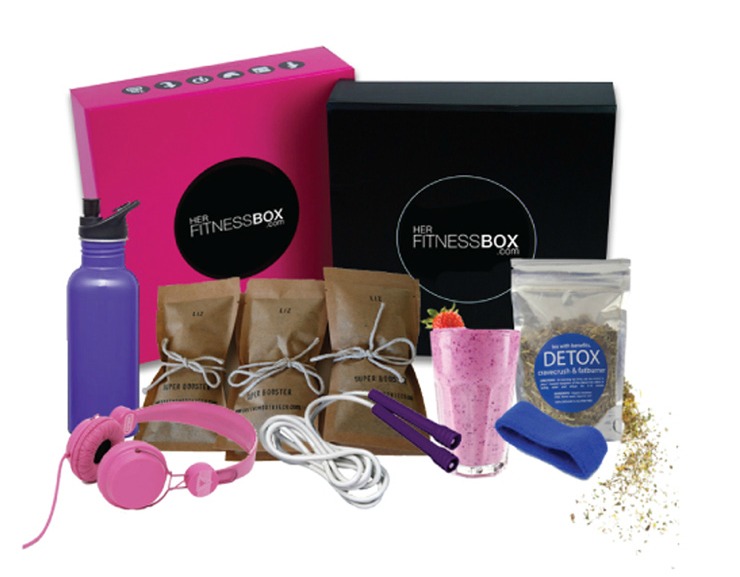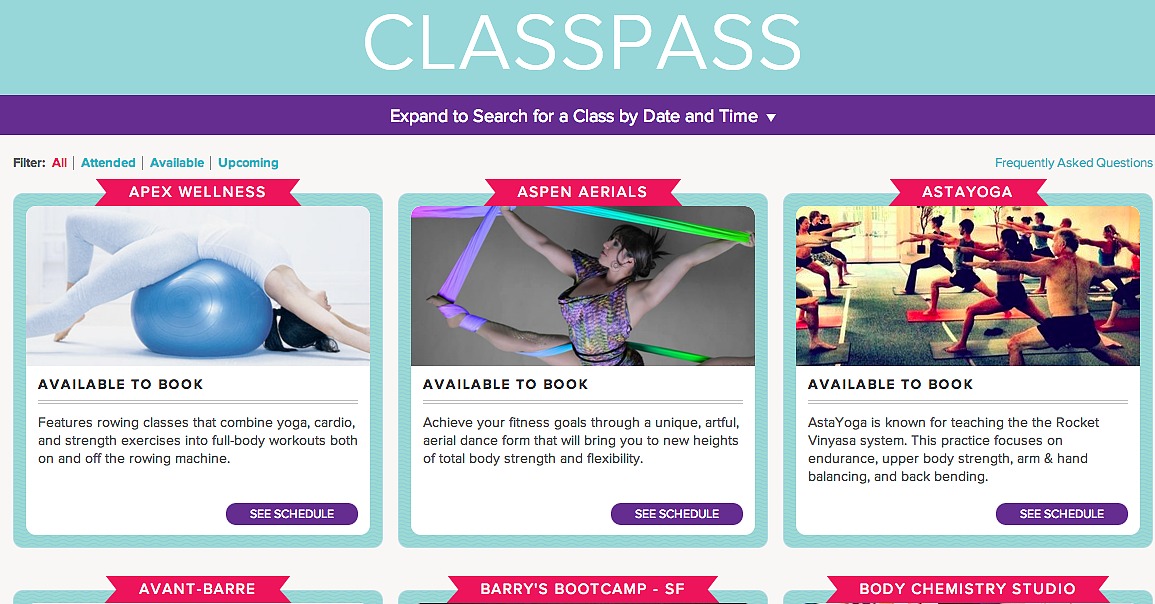It sneaks up on you. More and more of your assignments become “optional” (at least in your mind, anyway), weeknights spent binge watching Disney movies become increasingly appealing and the library becomes a place you never dare to enter. Collegiettes, we’re talking about the infamous ailment known as senioritis.
We totally get it: It can be hard to buckle down and concentrate senior year when all you and your friends want to do is live each and every one of your final days of college to the fullest. But it's important to still be looking for jobs and doing what needs to be done so that you don't have to move back into your parents' house after graduation!
To avoid a last-minute scramble and an awkward silence when asked what your post-grad plans are, here are some tips for staying motivated during your senior year.
1. Get inspired
![]()
First things first (we’re the realest): A collegiette needs to be passionate about her career and life after college. In other words, she has to be inspired! For nights when your friends are begging you to go out but you have a huge lab report to finish, it can be helpful to have a little bit of visual inspiration to keep you on track.
Try turning a corkboard into a dream board with your favorite inspirational quotes and images, like a photograph of your career idol or a newspaper clipping highlighting a company you’d love to work for, and hang it above your desk for a daily reminder. Scour your favorite fashion magazines for photographs of fabulous women in kickass pencil skirts, or check out Pinterest for quotes from successful women (Hillary Clinton and Beyoncé are our faves). It’s much harder to blow off that econ assignment when Queen Bey is reminding you that “Power is not given to you. You have to take it.”
Another tip is to create an academic bucket list to ensure that you’re getting the most out of your senior year while still setting yourself up for success after college. Make sure to include all of the things you want to get done before you graduate, like making the dean’s list, getting coffee with your favorite professor or scoring a job in a certain industry. Print out your bucket list and hang it somewhere you know you’ll see every day (like the back of your door or on your mini-fridge) to serve as a reminder of all the things you want to accomplish.
If you’ve started slacking off on assignments toward the end of your college career, it can also be helpful to remind yourself why you fell in love with your field of study in the first place. “This is going to sound nerdy, but I became very aware of just how awesome my classes were and how amazing it was to spend my time just reading and talking about books and writing about books,” says Hannah, a recent college graduate who majored in English at Middlebury College.
2. Get organized
![]()
You’ve probably heard this a million times, but the best way to get things done is to get organized! If you don’t already have one, get a planner and keep track of everything you need to get done, including school assignments and career-related tasks, like polishing your resume or obtaining a letter of reference. If you struggle with staying on task, break your week into daily checklists to make your tasks more manageable while still getting them done.
Susan Walker, associate director of career services at Middlebury College, recommends setting aside time to focus on things like job applications or polishing your resume at least once a week. “If you’re a planner type of person, you could block out a couple of hours a week to work on this, and in the end, that makes it less stressful,” she says. “Doing all the prep allows you to be ready to take advantages of opportunities when they show up rather than scrambling at the last minute.”
Set aside a few hours on a Sunday, for example, to read through your resume with fresh eyes and try to spot grammatical errors, or to make sure that the contact information for your references is up-to-date. The idea of tackling your entire resume in one day is enough to make any collegiette procrastinate, but tackling it bit by bit will make the process much more manageable.
In terms of when you should start getting organized and planning out your career trajectory, “the summer and fall is a good time to be gathering information,” Walker says. Emily Miethner, founder of FindSpark, a company dedicated to setting up young professionals for success, agrees. “As soon as possible, you should always be researching companies and people you want to work for,” she says. “Especially during your senior year, you should definitely start browsing job boards and company career pages, and then looking up people who work in those places and trying to connect with them either through social media or offline.”
The summer before your senior year, make an Excel spreadsheet with potential companies you might be interested in working for after college, including your ideal position title, the company website and any contact information you can find, and update it during the year as job listings become available. The more organized you are early on, the less stressed you’ll be and the less likely you’ll be to put off the daunting task of establishing a post-grad plan!
3. Visit the career center
![]()
Setting up an appointment with an adviser in your campus career center is one of the best moves you can make as a career-minded collegiette. Not only can your career center help you decide what you want to do after graduation, but also it’s full of amazing resources you probably didn’t even know existed, like self-assessment tools, resume and cover letter workshops, practice interviews, career counseling and help with finding internships through alumni connections.
“I can’t emphasize enough to take advantage of those resources,” Walker says.
Miethner also emphasizes taking advantage of career center resources when you’re still an undergrad and says that these really helped her get ahead in college. “You kind of have [those resources] available when you graduate, but it’s obviously not as convenient,” she says. “Utilize that extra set of eyes to look over your resume!”
If you feel like you might be suffering from senioritis, a visit to the career center can help you get organized and understand the timelines associated with landing your dream job. Plus, if you schedule regular meetings with a career center adviser, you’ll be held accountable to stay on track with your job-hunting plan.
4. Get involved and stay involved
![]()
Miethner emphasizes that experience is definitely crucial when it comes to landing your dream job or grad school acceptance letter. “When you’re a senior, your focus should be on networking and work experiences that you know will be beneficial for your future work,” she says.
Work experience isn’t limited to jobs or internships; you can have valuable experiences your senior year without even stepping off campus! If you’re an aspiring writer, for example, senior year is the time to really amp up your contribution to the campus newspaper and maybe ease up on your rugby commitment. “If you’re the type of person who’s involved in half a dozen clubs, senior year is when you have to think about, ‘What is really going to help me in the future?’” Miethner says.
Kayla*, a recent graduate of the University of Florida, was able to combat her senioritis by focusing on the on-campus activities that made her happy and looked good on her resume. “I was lucky enough to be involved in organizations I’m very passionate about, so I focused all my energy on growing professionally within those groups,” she says. It looks like Kayla’s dedication paid off: She landed her dream job halfway through her senior year!
Extracurriculars can be a great way to stay motivated during your senior year, but it’s important not to let your grades slide! To get the most out of both, try thinking of your pre-med club, for example, as one of your academic classes, but one that ranks just below your normal course load. Carving out time to spend on your career-related extracurriculars once you’ve finished your other class work will help you balance important grades with valuable experience.
5. Try the tough-love approach
![]()
Looking for a strategy that will send your senioritis running for cover? “Know that there are always people working harder than you,” Miethner says. “It’s a sad truth, but you’ve got to keep up so that when you graduate you’re not left behind.”
We totally understand that between nostalgic goodbye parties and end-of-year festivities, it can be tough to remember that your senior year grades factor into your overall GPA. Whether you’re contemplating grad school or a job, your grades and GPA will play a huge role in where you go after college, and sometimes you just need to get down to business for the sake of your future.
Alison*, a senior at Middlebury College whose senioritis started her junior year, found that reminding herself of her future goals was the best way to stay on track. “I think the thought of graduating has made me work harder, and I know that I need good grades for law school,” she says.
Had a little bit of an adjustment crisis freshman year that left your GPA lacking? Not to worry, Walker says. “It’s the trajectory of your GPA that’s important,” she says. “If you’re working your way out of a 2.9 and you’ve gotten up to a 3.4, the upward trajectory is impressive.” It’s never too late to improve your GPA, and employers as well as admission officers will take notice if you take the time to focus on your grades!
![]()
College is a time to experience new things, make new friends and find what you’re truly passionate about, but it’s also a time to set yourself up for future success.
“Advice I would have is for seniors to find a balance and to not be in denial about the fact that after this year, they are going to be pushed out into the world,” Walker says. Make sure that you’re enjoying your undergraduate experience, collegiettes, but keep in mind that if you start early and make the most of the resources available to you, college won’t have to be the best four years of your life!
*Names have been changed.









































































 Eating healthy is a huge part of staying fit. This cookbook will help you get started with meals that will get you fueled up and satisfied all while being nutritious and light. The foods (along with exercise) will help tone up and boost your performance.
Eating healthy is a huge part of staying fit. This cookbook will help you get started with meals that will get you fueled up and satisfied all while being nutritious and light. The foods (along with exercise) will help tone up and boost your performance.  This kit is perfect for the new yogi. It has everything you need to get you started, including the strap and blocks that will help you get into different poses. Plus, the mat is made without harmful phthalates!
This kit is perfect for the new yogi. It has everything you need to get you started, including the strap and blocks that will help you get into different poses. Plus, the mat is made without harmful phthalates!
 This highly accurate scale measures weight, body fat measurements and BMI. It allows you to pick through body types to get a good read on your measurements. It's also smart phone-accessible and it stores data so you can keep track of your progress!
This highly accurate scale measures weight, body fat measurements and BMI. It allows you to pick through body types to get a good read on your measurements. It's also smart phone-accessible and it stores data so you can keep track of your progress! This subscription box was created for the female athlete. Each box contains 1 to 2 fitness accessories and 6 to 8 health and lifestyle samples, and ships quarterly so there's a new set of fitness must-haves just when you need them!
This subscription box was created for the female athlete. Each box contains 1 to 2 fitness accessories and 6 to 8 health and lifestyle samples, and ships quarterly so there's a new set of fitness must-haves just when you need them!
























































































